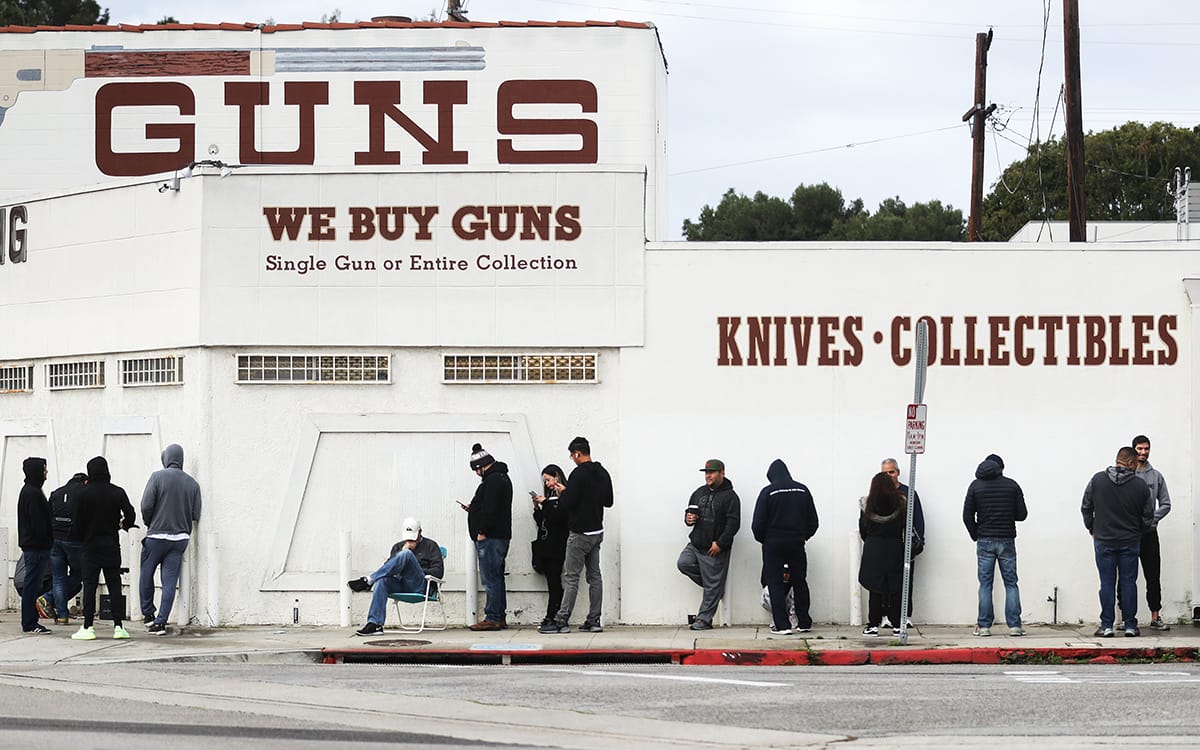
Panic Buying Guns Won’t Keep You Safe During the COVID-19 Pandemic
The coronavirus pandemic is terrifying communities across the country. Many people are panic buying groceries and toilet paper. One man bought nearly 18,000 bottles of hand sanitizer. Government leaders have begged the public not to stock up on the N-95 masks that healthcare professionals desperately need.
The New York Times reported that background checks spiked by 36% in February 2020 over the same month last year. This figure likely understates the number of guns being purchased because federal law and the laws of 29 states do not require background checks to be conducted on guns purchased from unlicensed sellers. Online retailer ammo.com reported a 222% increase in transactions and a 309% increase in revenue in February.
This surge is driven by people wanting to protect themselves and their families, which is an understandable impulse. But it could put your family in even more danger.
How Guns Lead to False Feelings of Security
Some people report buying guns during the pandemic because they are afraid of future lawlessness due to a breakdown of public order. Some claim to be buying guns to protect their homes and families from breaks-in perpetrated by people desperate for supplies.
But as a former law enforcement official and current gun owner, I can tell you that stocking up on firearms won’t protect us from a virus. And fear of a breakdown in social order isn’t based on evidence: it’s a marketing tactic that the gun lobby has used for years.
The NRA profits from stirring up fear: fear of the government, fear of break-ins, fear of immigrants. Wayne LaPierre, Chief Executive and Executive Vice President of the National Rifle Association said this in 2015 :
When a criminal attacks, politicians aren’t there to protect you. Their laws can’t protect you. And the media’s lies can’t protect you, either. You’re on your own. But you know what can protect you when no one else can, when no one else will? The ironclad, absolute safeguard of the Second Amendment right to keep and bear arms.
This use of fear to influence Americans to buy more guns ends up threatening American lives—not protecting them.
The Reality: More Guns Means More Gun Violence
The evidence shows that owning a gun does not automatically make a person safe. In reality, it makes them more likely to be shot and killed. Self-defensive gun use is rare. Having access to a gun doesn’t better protect people from being injured during a crime compared to other protective actions like calling law enforcement. One study found that individuals successfully defend themselves with a gun in less than one percent of crimes in which there is contact between a perpetrator and victim. Carrying a firearm may actually increase a victim’s risk of firearm injury during the commission of a crime.
Firearm access triples the risk of suicide death and increases the risk of homicide, and can escalate dangerous domestic violence situations. Guns in the home are much more likely to be used to intimidate an intimate partner than to prevent crime. When an abuser has access to a gun, a domestic violence victim is five times more likely to be killed.
At a time when more Americans are stuck in their homes for long periods of time, we need to take steps to prevent unintentional shootings and firearm suicide among teens.
Stay Home to Stay Safe
Only time can tell how the COVID-19 pandemic will affect rates of gun violence. But what we can say is that increased rates of firearm suicide, homicide, and unintentional gun death would be yet another casualty of an already catastrophic pandemic, in a nation that already leads the developed world in gun death rates.
Buying into the gun lobby’s fear-based worldview will only weaken public health and safety during this unprecedented time. As public health officials around the world are instructing, stay home, stay safe, and be considerate of those around you. This means avoiding a panicked rush to the gun store too.